Facing disciplinary consequences is an uncomfortable reality that contributes to our growth as people. Especially as teenagers with the pressures of grades, activities, conflicts with friends, and sometimes emotional instability, breaking rules seems more intriguing because we believe the world owes it to us after all.
There is no question that the pressures we face are exceptionally large. With the political and economic state of the world, leaving campus, taking advantage of AI, and eating on the pristine new carpets seem minor.
As we are a Quaker institution that believes in an absence of hierarchy and a holistic learning environment, upholding these norms alongside discipline policies seems incompatible.
To what extent does AFS handle infractions, while maintaining a relationship of trust between faculty and students?
Abington Friends School is a Quaker institution with a strong core value of mutual respect. AFS and other Quaker schools demonstrate this value by including different perspectives from students and faculty thus implementing Quaker testimonies in difficult decisions.
Because of the nature of a quaker institution, the culture around discipline is very different to the processes at non-quaker schools.
One of the challenges of discipline is that it sometimes can disrupt the sense of community for students. As a school and a Quaker institution, sometimes it’s tough to navigate the intersections and the forks of the two roads of Quakerism and being an academic environment.
Quakerisim teaches that each person has a light inside of them, which is why even when it comes to discipline it is difficult to adopt a black and white way of thinking while simultaneously upholding the Quaker values.
If each person holds light, how should a teacher go about deciding punishment? How does a school ensure that its course of discipline is not one that makes the community less strong?
These are questions that are considered when it comes to discipline at AFS. There is tension between the fundamentals of Quakerism and the needs of a school community.
Upper School director Brendon Jobs says, “Quaker schools are made to wrestle with tensions, not all schools are built that way.”
One prevalent example of a disciplinary action that is meant to uphold community is the system of Dean’s Advisory Council or DAC. The DAC process uplifts student voice in difficult decision making to heal mistrust within the community.
DAC is the bridge between faculty and students, there to represent the student perspective while holding integrity.
Kennedy Gilbert ‘24, a member of DAC all four years of high school, says, “It’s a way for students not to feel punished by…the Dean of Students…I’m a student and I understand what it’s like to be stressed out … I feel like there is a little bit of a grace when it comes to DAC.”
Dean of Students Tina Yen says, “In DAC, the conversation that happens is…how can we hold community in this?”
But is this fair to students in that students are holding other students accountable?
Gilbert says, “I think it helps a student because…having an adult/ deans making the decisions…can be one sided…on DAC we can relate to the student in a way.”
However, DAC can sometimes be perceived as a system where students punish other students.
Gilbert says, reflecting on those tensions, “I feel like the people I have DAC(ed)… definitely have their feelings towards me…they don’t know what I have said when they leave the room, but I get that though. I guess the rep is that [students]… look at us like the police.”
DAC can be misinterpreted as a prosecution board, but it is a unique system that puts more students in the conversation around both discipline and community restoration, which it is important to recognize.
In addition to DAC, AFS has a system of “norms” that are upheld throughout all three divisions and in every classroom. The expectations that teachers have for students in the classroom revolve around those norms.
Upper School English teacher Haley Hellmann says in regards to how norms shape her classroom, “It depends on the class/group, but norms I think are the most important things that I focus on…In 9th grade we’ve been strict about the phones and being present, not so much with the upper grades because…it’s a little bit more their responsibility.”
When asked about the frequency of consequences given, Hellman says, “I haven’t taken any phones this year. I have given a detention…, but I’ve had conversations…intended to restore situations…and that’s been…my way of disciplining because I firmly believe…within the classroom my relationship with a student matters most so I try to heal it within my walls if possible.”
Hellman uses the norms often to make sure her students know and can agree on the expectations of them.
Similarly, History Department Chair Drew Benfer says, “I’ve always known AFS as a place that has given a range of consequences and supports…I think we talk all the time about expectations.”
Regarding how discipline can equate to Quaker norms and if discipline creates tensions between faculty and students, Benfer says, “My understanding of Quaker values is there is not a statement that says ‘no discipline is permitted’ the same way having been a varsity coach, there’s nothing that says in Quakerism you can’t compete…There is a way you do it.”
Both teachers provide examples of the ways that being an institution built on Quaker values affects their classroom methods and experiences. Having norms and agreements as opposed to rules creates an environment where students are aware of the expectations that teachers have of them, and it ensures that they know why those expectations exist. The norms are built to center community and the belonging of everyone.
One of the most unique features of the discipline practices at AFS is the work towards restoration opposed to focusing on the punishment itself. AFS recognizes that we’re human beings bound to make mistakes and offers a holistic solution to the harm that may interfere with the norms that are upheld.
Ava Cole ‘25, a member of the new restorative practice program, says, “It is important…it helps with our development. I see it in myself…the difference in how I approach challenges and problems because of this training.”
Even though DAC or other restorative circles may be misinterpreted as the AFS police, keeping tabs on students that mess up, as undercover student spies waiting with bated breath for a mistake to occur, the purpose of DAC is to advocate for student needs and create a space for a student to tell their side of the story with moments of reflection.
At AFS, we believe truth and justice go hand in hand, and restorative practice work contributes to our Quaker beliefs rather than withdrawing from them.
Overall, AFS is in a unique position with discipline. The Quaker values, specifically of Community, are centered deeply in the restorative practices and discipline.
No institution is perfect, but the inclusion of restorative practices and Quaker values in the conversation around discipline are unique to our community.
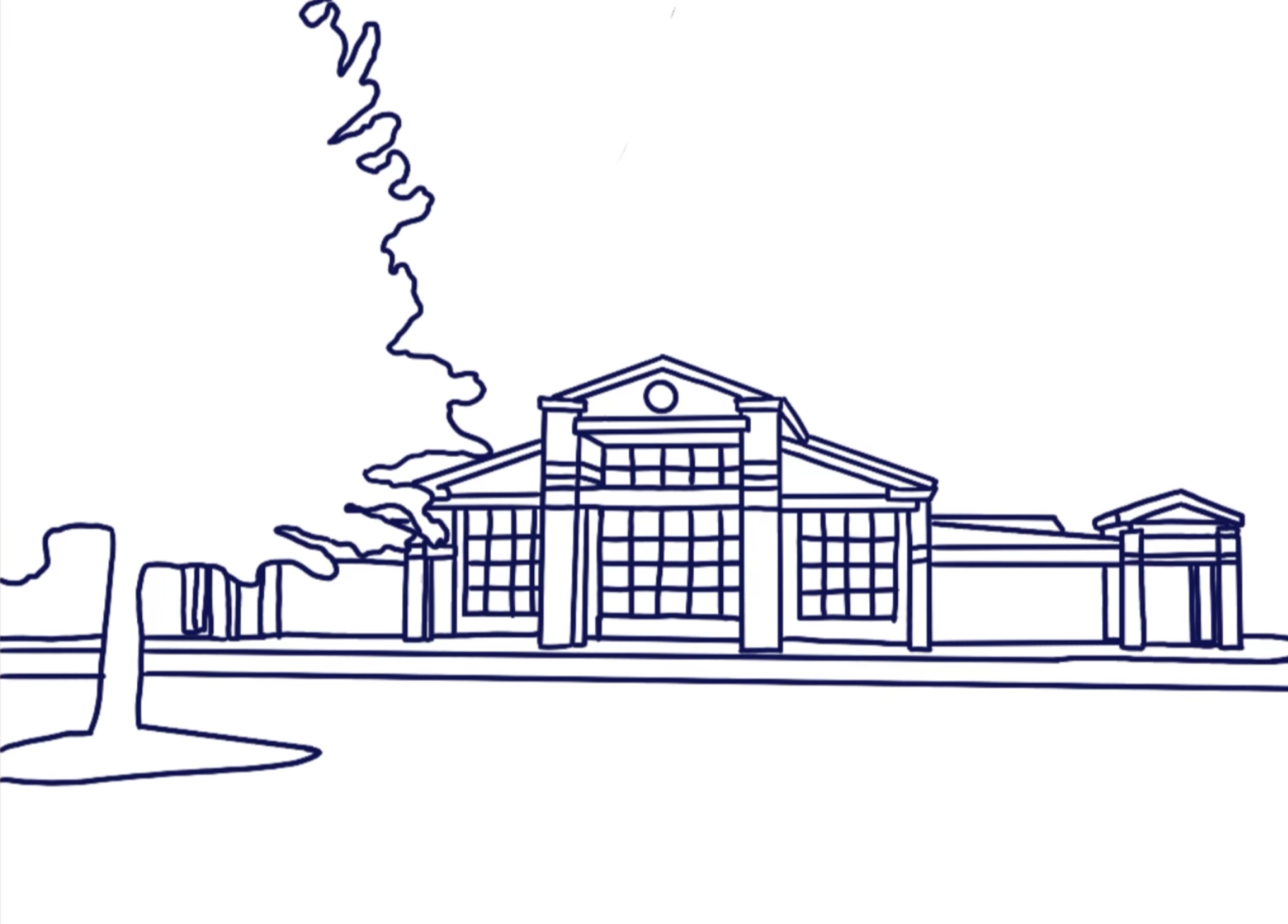












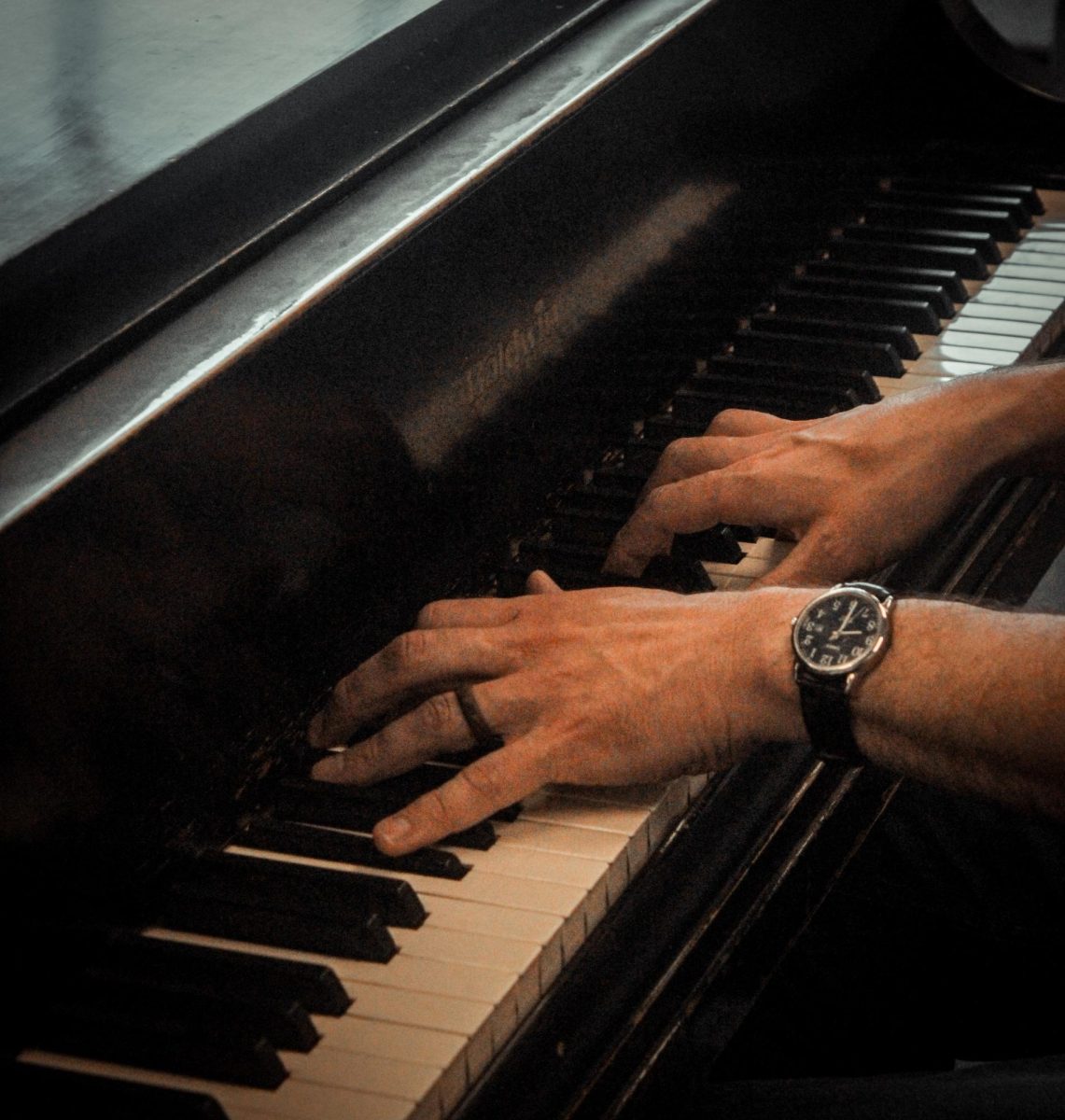
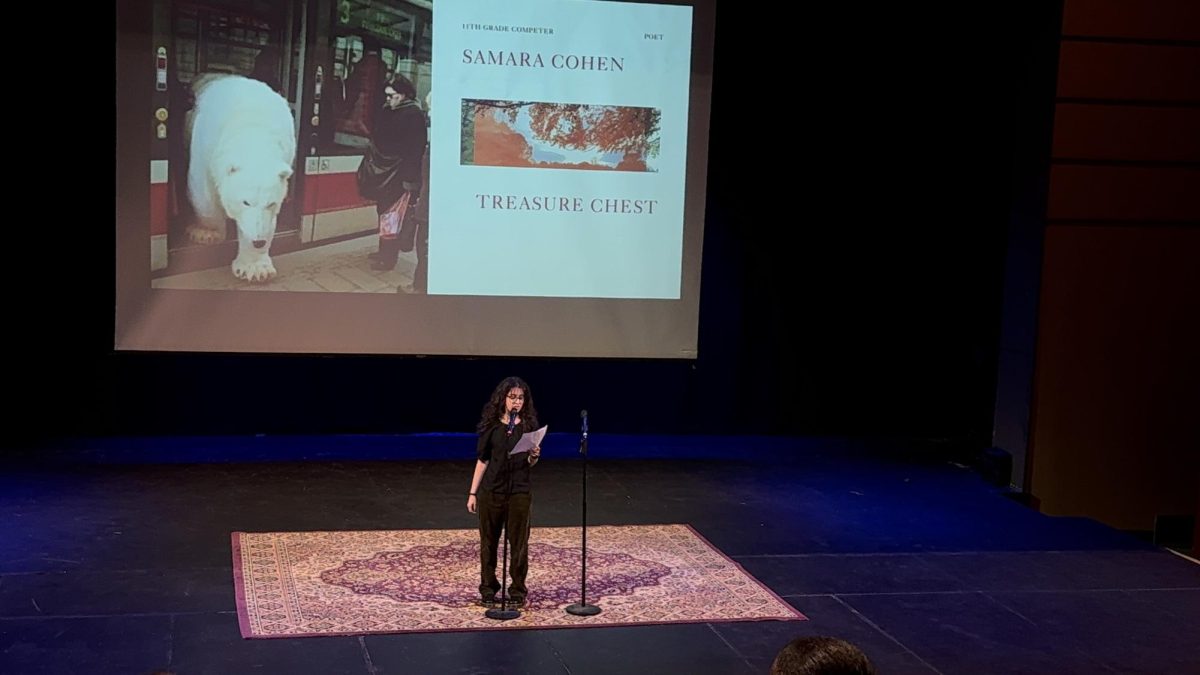



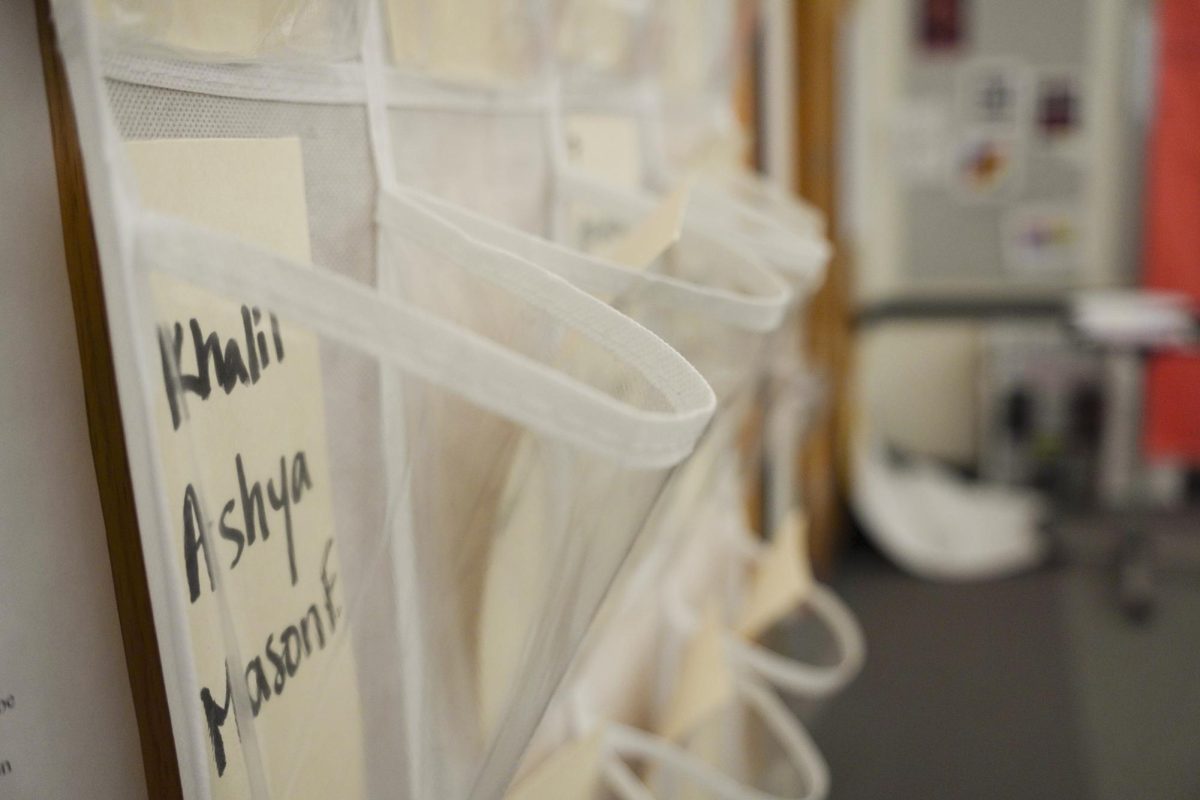




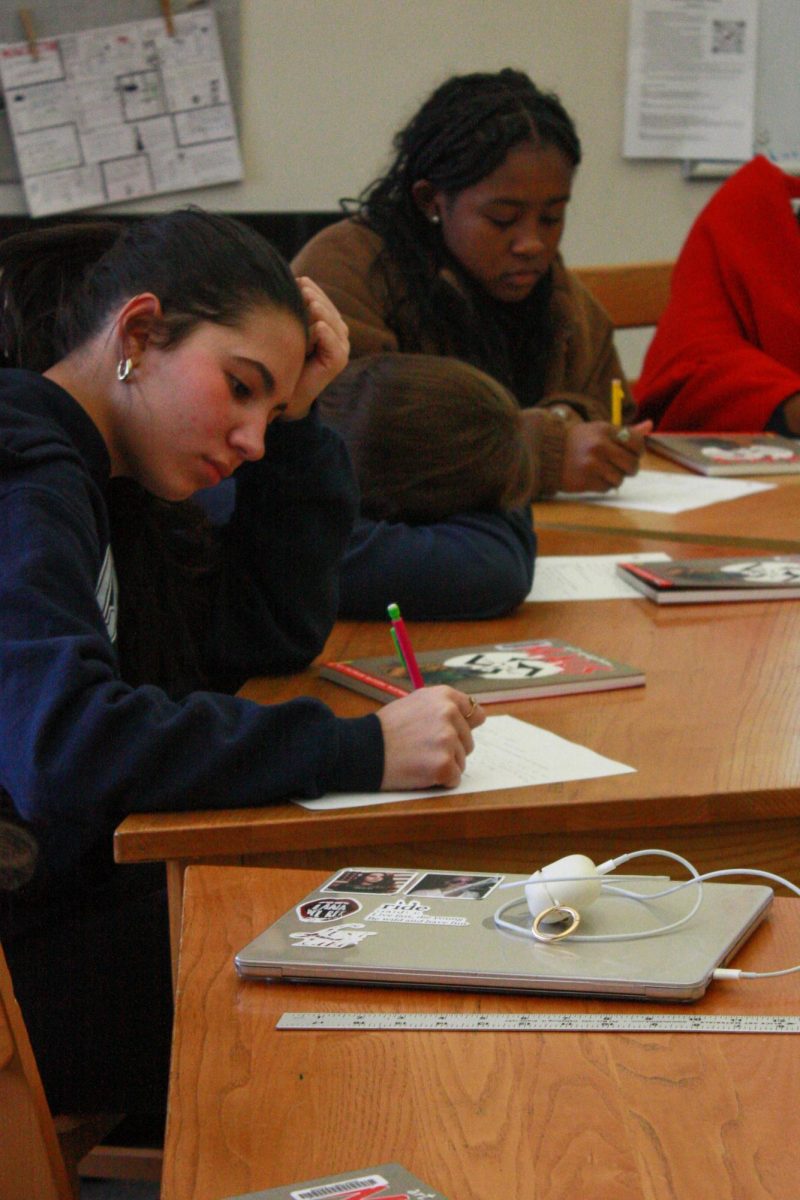


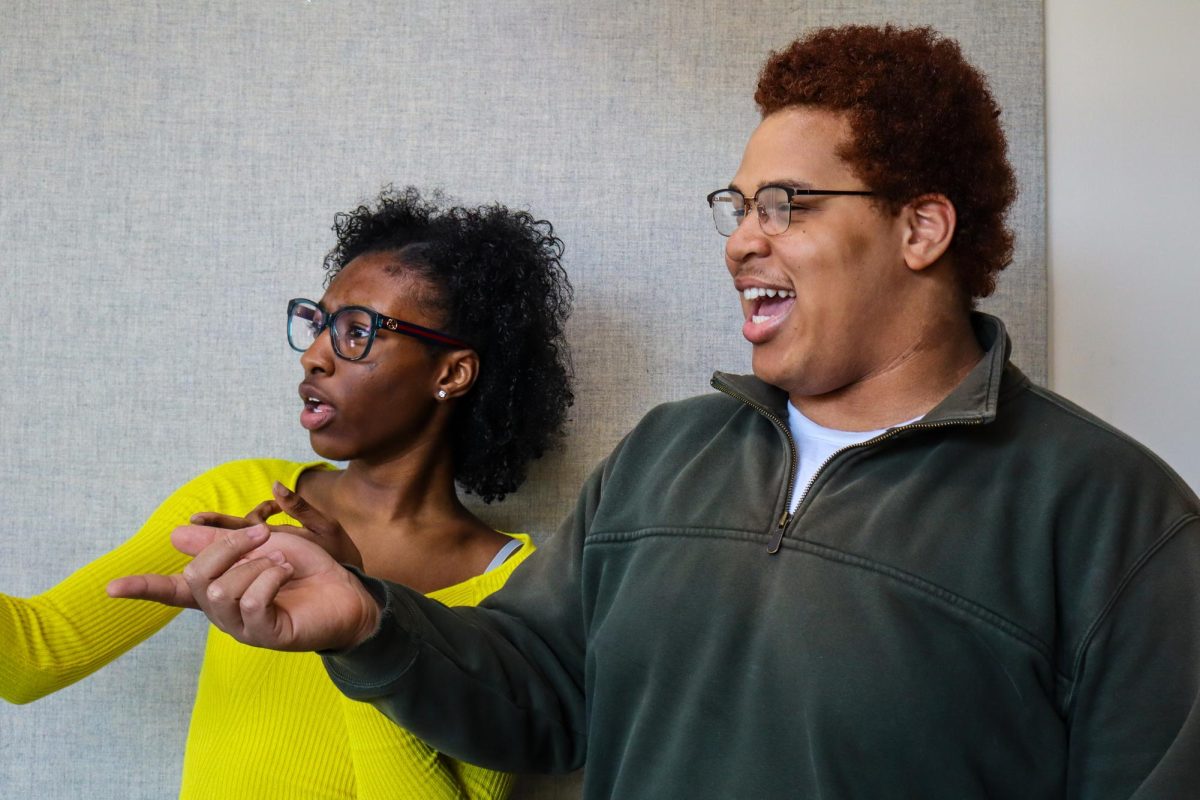



Jarius Ford • Apr 22, 2024 at 10:06 pm
I am aware of the community that AFS as a Quaker institution has to implement, but I believe that AFS as a whole should have a better disciplinary system. I believe that DAC and the restorative practice programs are good things to have that make us unique compared to other schools, but I believe that there should be more of an authoritative presence in our school, particularly among the teaching staff. To be frank I think teachers are too lenient when dealing with an issue with a student. The teachers here are very nice, and when implementing rules for the classroom I’ve experienced teachers being hesitant to tell students what they prefer, and using different phrasing of words to make it seem like they are less “threatening” or “authoritative”, and I personally believe that shouldn’t be the case. In my eyes, you are the teacher, the authoritative figure, and shouldn’t have to say things differently because you don’t want to offend the student. Now I’m not saying to be overly stern individuals, but just implementing what you want. I believe, and have seen that teachers trying to be “nice” to students while still implementing what they want sometimes can come off as passive-aggressive. I believe this can be avoided if you just are direct, and say what you want to be done. I think this is in fact the better way. This implements more respect, and just overall improves the environment at AFS. There’s more to this but this is just a gist.
Timur • Apr 4, 2024 at 11:14 am
I think that AFS has discipline and a good amount of it but it could be implemented way better than how it is currently. Yes, at least the system works but some punishments given out are too much for what the person did or sometimes someone could do something bad and only get off with a slap on the wrist. The DAC system feels like an attempt to talk to the person who got in trouble but in reality it’s just not a good way to go about this and doesn’t fulfil its purpose when the decision is ultimately made by one person in the end anyway.
robbie • Apr 4, 2024 at 10:11 am
I thought that this topic was very interesting. I especially found it to be intriguing to hear the DAC student’s viewpoints about how students may view them and how the DAC students responded. As a student at AFS, I hear mixed reviews about DAC. Some see DAC as a good thing, and others have a rather opposed perspective. I personally think DAC is a better and more effective way of discipline, because the students have a better sense of understanding than the adults. The students can take the situations of student and teenage life into consideration and give more grace in certain situations.
Isabel Grey • Apr 2, 2024 at 10:39 am
I agree with the perspective of this article and support the points made that DAC is not a system of enforcement but a system of support and advocacy. Many other schools do not have the time or the structures to think about how the consequences put in place for students might teach them or what it might not teach them. AFS makes sure that the disciplinary action or consequence helps the student to understand how actions impact others and how rules are there to ensure safety and community and not just to restrict fun. I support the personalized disciplinary system that AFS has in place because each person is different and has different intentions behind their actions and AFS is a very diverse community some things might not seem like a big deal to some but are huge for others.
Lukas • Apr 2, 2024 at 9:17 am
While I believe there are some flaws with the punishments system that AFS employs, I also believe that it is a system that works in comparison with others used at different schools. I think that a system that allows students to not only have a say but a large one in that on disciplinary issues regarding other students is something that is irregular to other schools and we are lucky to have. I understand that some people may fear the group they meet at DAC because maybe they feel like some relationships in that meeting can be awkward, but DAC’s job is supposed to rely on them being completely objective and fair to you and your issue. So while problems may arise with this system, it would with any system we would’ve had so we have to work with what we got.
Solomon Fishman • Apr 2, 2024 at 7:59 am
I do agree that Quakerism certainly is at the forefront of discipline and restorative justice in our school community. I do however wonder why the authors persistently refer to our community as an institution because yes technically we are an academic institution, but calling our community an institution feels slightly hostile. I feel like referring to our school as an institution undermines the community and dignity we hold for our peers and faculty which greatly informs our discipline process. I also feel that restorative practices and justice are certainly an appropriate way of “wrestling” with conflicts and infractions. Something really admirable about our implementation of restorative practices in our disciplinary system is that it really honors dignity in the way that it is designed to “meet members of our community’s needs (idea paraphrased and partially quoted from an article on Restorative Justice in Quakers in The World)”
Piper • Apr 2, 2024 at 7:58 am
I believe that the discipline system at AFS is deeply flawed and ultimately harms the majority of the student body. Given the nature of our schools culture, AFS discipline appears much more lax compared to that of other schools. In an effort to be “holistic,” punishments towards students are kept private between them, the adults involved, and potentially a member of DAC. The lack of acknowledgement of these acts from upper school management gives students a sense of security that they can act out in a way that is damaging to the community without severe punishment. And they aren’t inherently wrong. Given that we are a private institution, much of the schools funding comes from tuition from current students. Often at private institutions, wealthy parents are able to buy grace from the school for their children. When the only “discipline” the student body sees are detentions – which aren’t present on permanent records and many teachers have admitted to being a very inconsequential punishment – how are students supposed to feel safe in this community? The adults in power at AFS need to make it clear that acting out – whether it’s stealing, hate speech, or any of the other issues that plague the student body – will not be tolerated here.
Logan • Apr 2, 2024 at 7:55 am
Last year, I was placed in DAC. While there, I experienced the restorative practice of Alternative to a Suspension. This approach creates personal growth rather than punishment for misbehavior. I strongly believe that harsh punishment can create a negative reaction in students. Instead, it is important for students to reflect on their actions and learn from them in order to grow and develop. However, I also believe that implementing strong boundaries is necessary, or there will be too much freedom. In AFS, there is a strong mix between setting strong boundaries and harsher consequences. with where we can eat to cheating on a test. On this scale, there are different conquests, such as small detentions, all the way to DAC meetings.
Nico Zapf • Mar 28, 2024 at 2:10 pm
I believe that the discipline system at AFS is very progressive and aligns with the values of this institution, however, I do believe there are flaws in the system.
As a member of DAC, I am very familiar with the process. During a DAC meeting, the student in question gets the chance to share their story with not only teachers but fellow students. Not only are students present in this meeting, but they are also the ones leading it. During the meetings, everyone is given a chance to speak and by the end, a reasonable next course of action is agreed upon.
In theory, this system should work to rebuild the community and help the community move forward, from personal experience I have found this system lackluster in preventing future infractions. Why this is the case is up for discussion; it could be that the community of AFS has an overall lenient personality which allows infractions to occur, however, that is just a speculation.
Kmaani • Mar 21, 2024 at 11:10 am
I think the discipline system that we have here was very eye-opening for me, as I come from a school with a very harsh discipline system. I come from a school where it’s fights and outbreaks of violence and at AFS it’s different. It is a very circled feeling and how to make someone feel better when they do something wrong, rather than give a punishment and make them learn from it. But even though that is the main problem with the discipline system, I wouldn’t say that AFS discipline is bad because of the type of people and the type of school that it is. I just feel that it softens the students and doesn’t teach students how to deal with problems in the real world, but caters to how the students feel more than the problem that the student has committed. For me personally, I have gotten disciplined at AFS before with detention and that’s something that I can relate to because before I came here I experienced that punishment. I feel that compared to other schools especially public schools, it doesn’t meet the requirements that a school needs to make their students learn from their mistakes. And that’s something I find a lot of different schools have that AFS doesn’t.
Aly • Mar 21, 2024 at 10:44 am
I found the article referenced to be very eye opening, offering perspectives from both supporters and critics of DAC. One aspect that stood out to me in perticular was the potential discomfort of being evaluated by peers without knowledge of their opinions about what was done. I know that if i were in that position I would definitley be uncomfortable with people who I don’t know very well deciding my fate. However I also agree with the fact that DAC serves as a necessary precaution against unfair criticism of students by the faculty. However, I think that the same fact can apply to DAC. People might already have predetermined biases about someone and completely base their decisions off of that which makes it completely useless. Overall I think that it is a useful asset to our community but it is crucial to remember that people need to take responsibility for their actions and be held accountable when mistakes are made.
John • Mar 21, 2024 at 10:44 am
I think it’s very interesting how little we are disciplined compared to other schools. We are often given more leisure punishments, severe punishment is not taken lightly and more than one faculty member thinks throughout action. DAC is a great example of how more than one person is brought up to decide the given punishment for the student. This process forces us to think more about our community. The Quaker values involve a more democracy-based system, we are all thinking more about each other than we would otherwise. It creates a trusting environment and forces everyone to think about how their actions will affect others regardless of their infractions. The community as a whole is less selfish, and almost all punishable offenses are often harmless to other people, think of lateness or leaving campus or eating where you’re not supposed to. it’s very rare to see someone harm another student and this is because of our values that are impressed upon the students.
Dillan Shafer • Mar 21, 2024 at 8:35 am
I agree with the perspective in this article that DAC and other restorative practice groups are a way for students to have their side of a story heard, not student police. I’m a freshman, and this is my first year at AFS. For me, all of elementary and middle school took place at a pretty average public school. The teachers handed out discipline – students had no role in deciding punishment whatsoever. One of the most prevalent differences I’ve noticed is how little discipline needs to be handed out here compared to my old school. Now, there could be multiple factors affecting this – AFS is a much smaller school, and the student body here is somewhat hand-picked. However, I believe that the way we handle discipline here impacts the number of disciplinary infractions. Students are less likely to challenge the rules when they know their peers have a say in how they will be punished and that the consequences given to them are fair and out of a place of respect. Overall, I think groups like DAC are assets for AFS.
Eli Belotserkovskiy • Mar 21, 2024 at 8:35 am
I think the article brings up some important points like the line between Quakerism and discipline. However I do disagree with some of its main points. The article says, “DAC can be misinterpreted as a prosecution board, but it is a unique system that puts more students in the conversation around both discipline and community restoration, which it is important to recognize. ” While I do think that it is a better option then lots of others, I also think that DAC should be called what it is and it is a Prosecution board. DAC meets to decide the punishment and repercussion of students actions. It is great that a lot of members are students because it allows a new perspective but it also might be susceptible to certain biases that kids do not control as well as adults. It is in all our interests to admit that while it is a great option, it is still a Prosecution Board.
Eliot Bramson • Mar 21, 2024 at 8:32 am
As a freshman in DAC, I haven’t thought about how other students see me. When I learned about the position, the idea of being like the police never occured to me. I think DAC shouldn’t be feared by students because of the power that we hold. I think that if someone does something DAC worthy, they should see it as an opportunity to plead their case instead of just being handed the punishment. Though teachers try to (and some teachers think they can) fully understand student life. What’s great about DAC is that students understand students. We can relate to the things that people are going through, and deal with the problem accordingly.
Leila • Mar 21, 2024 at 8:32 am
I, a student who is not on DAC does not know how it feels to be the “police” for the students. I would imagine that if you are kind of close with the person who comes into DAC, there might be some hard feelings from that person if they get a punishment. However, I still appreciate everybody in DAC who still proceeds to do it even though their whole job is to find the right punishments for people, which I understand can be hard because you have to find the middle ground between a punishment that is too easy or an unreasonable punishment.
Derek • Mar 21, 2024 at 8:27 am
I believe that discipline is very important for young people. It helps shape you as a person and helps with self-control and responsibility. AFS has a very different policy when addressing punishment and discipline than other schools. They let you off with minor punishments or maybe none. Only very serious things will get you in trouble. This can reduce stress but can also cause a lack of discipline in someone. I think AFS should be less light-hearted with their punishments so students don’t become undisciplined adults.
Jacob Wilder • Mar 21, 2024 at 8:26 am
DAC was formed to better heal the quaker community here after damage had been done, but I think that DAC as a whole should be implemented in public schools across the US. Being judged by an adult who has not been in your position for years definitely does create a sense of separation between the one who is being punished and the one who is deciding punishment. After all, for most adults when they were in our position, education was a completely different field, and the idea of being in a similar position as the one who is deciding your punishment makes the punishment process more tolerable.
Jonas • Mar 21, 2024 at 8:24 am
I think that DAC is a good system but can have its problems. It gives students a chance to talk to other students who might understand them better and be able to relate to them more. However, if I was a student who got in trouble and DAC gave me a bad punishment, I probably wouldn’t really like the people on DAC yet if they didn’t give me a bad punishment I would like them. I also think that with DAC it’s necessary to have a group of teachers to approve the student’s decision because they could make a bad decision. I think that DAC can create a divide in students and it can be good as well as bad.